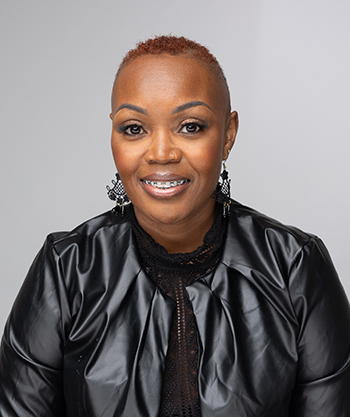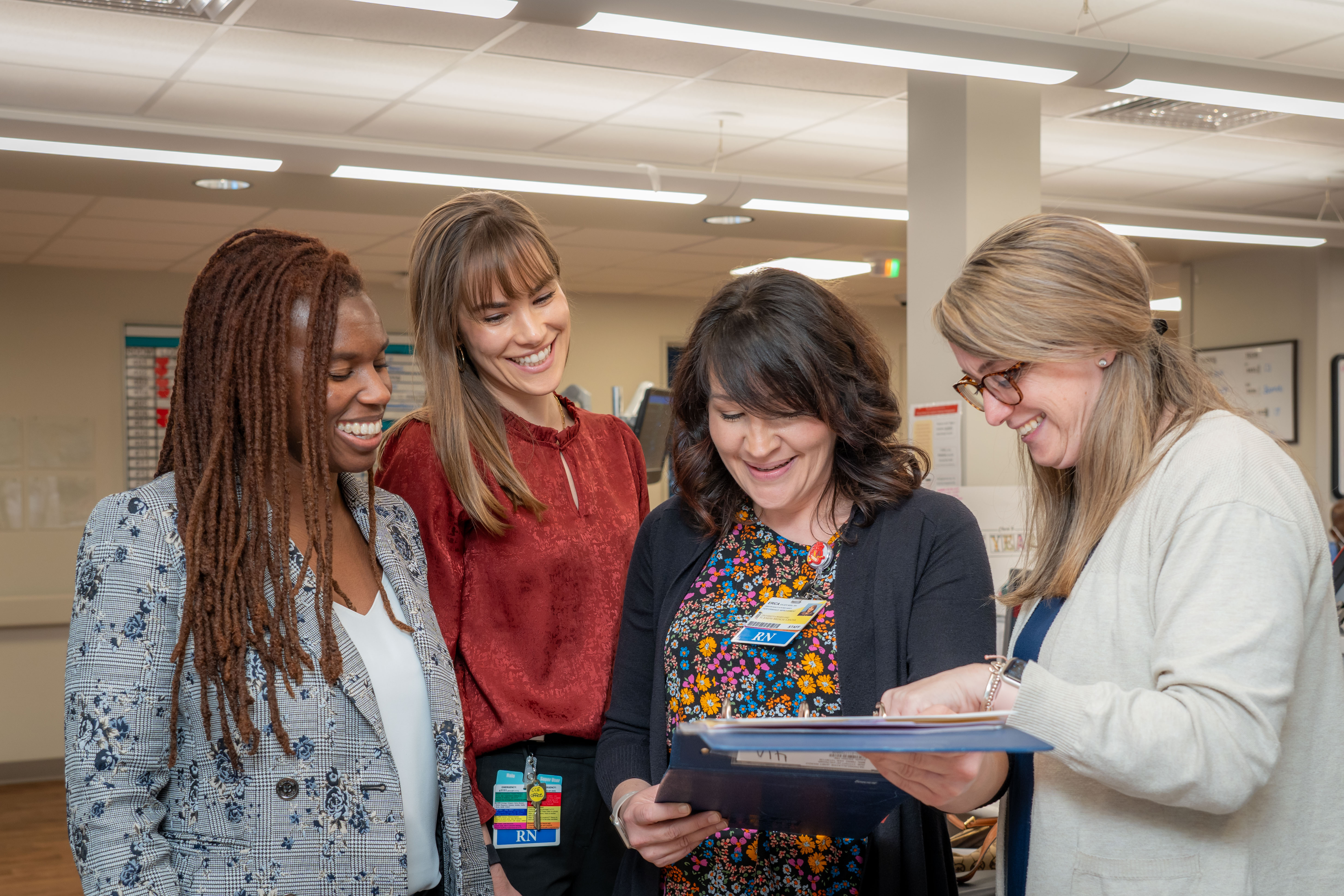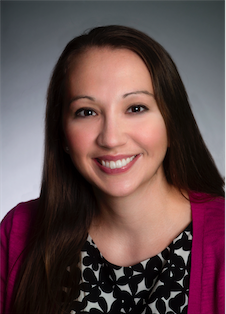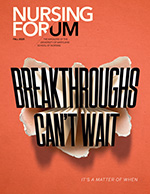News & Events
Latest News

UMSON’s Conyers Awarded Dr. Peg E. Daw Nurse Faculty Recognition Award for Excellence in Fostering Diversity in Nursing Education
February 27, 2026
Baltimore, Md. - Yvette Conyers, DNP, RN, FNP-C, CTN-B, CFCN, CFCS, CNE, FADLN, CWCN-AP, assistant professor and associate dean for strategic engagement and impact at the University of Maryland School of Nursing (UMSON), has been awarded the Maryland state Dr. Peg E. Daw Nurse Faculty Annual Recognition Award.
Conyers was recognized for demonstrating excellence in “Fostering Diversity,” one of six award areas. She is among 69 faculty recipients statewide of this $10,000 award, which recognizes commitment to excellence in nursing education and service to Maryland.
“I am truly honored to receive the Dr. Peg E. Daw Nurse Faculty Annual Recognition Award,” Conyers said. “This distinction is especially meaningful because it celebrates excellence across Maryland’s nursing education community. Being selected in the Fostering Diversity category is profoundly rewarding, as it affirms the importance of advancing equity, representation, and inclusion within our profession.
“I am deeply grateful for this acknowledgment of my work and for the colleagues and students who share in the commitment to fostering learning environments where every voice is valued and empowered.”
The award is part of the Nurse Support Program II, a statewide initiative funded by the Health Services Cost Review Commission and administered by the Maryland Higher Education Commission.
According to the letter of nomination, submitted by Yolanda Ogbolu, PhD ’11, MS ’05, BSN ’04, NNP, FNAP, FAAN, the Bill and Joanne Conway Dean of the University of Maryland School of Nursing and professor, Conyers excels in her ability to foster a diverse and inclusive educational environment.
“Through her welcoming nature and open-door policy, she has been particularly adept at creating a climate in which underrepresented students feel seen, heard, and supported,” Ogbolu wrote in the letter. “She is committed to mentoring emerging nurses and developing education models that challenge assumptions, foster critical reflection, and equip students to be compassionate nurses prepared to serve their communities as change agents.”
In 2023, Conyers led UMSON’s successful proposal to the Josiah Macy Jr. Foundation’s initiative, “Eliminating Structural Racism in Nursing Academia: A Systems Change Approach to Anti-Racist Nursing Education.” UMSON was one of 12 schools nationwide selected to participate in the collaborative, which seeks to improve nursing education environments for all students.
Conyers also led AACN’s national “Leading Across Multidimensional Perspectives Survey,” which examines inclusion and belonging within nursing education, including experiences related to curriculum, academic culture, and clinical environments. The work has continued through AACN’s “Building a Culture of Belonging in Academic Nursing” initiative.
With support from an American Association of Colleges of Nursing (AACN) Faculty Scholars Grant, Conyers recently established the UMSON Nursing Policy Academy. The program provides students with firsthand exposure to the policymaking process, opportunities to engage with nurse leaders and legislators, and education to influence health policy at local, state, and national levels.
She is also active in legislative advocacy. During the 2025 Maryland legislative session, she helped advance a bill requiring health professionals to complete training on structural racism as part of license renewal. The legislation passed the Maryland General Assembly, and Conyers is now developing educational programs to help professionals meet the new requirement, supported by grants from the American Nurses Association and the Maryland Nurses Association.
Conyers joined UMSON in 2023. She earned a Doctor of Nursing Practice degree and a Family Nurse Practitioner post-master’s certificate from St. John Fisher College in New York; a master’s degree in nursing education from Roberts Wesleyan College in New York; a Bachelor of Science in Nursing from the University of Rochester in New York; and an Associate of Applied Science degree in nursing from Monroe Community College in New York.
###
The University of Maryland School of Nursing, founded in 1889, is one of the oldest and largest nursing schools in the nation and is ranked among the top nursing schools nationwide. Enrolling nearly 2,100 students in its baccalaureate, master’s, and doctoral programs, the School develops leaders who shape the profession of nursing and impact the health care environment.
.png)
Eight UMSON Faculty Members Awarded More Than $350K to Expand Nursing Education Capacity in Maryland
February 13, 2026
Baltimore, Md. – Seven University of Maryland School of Nursing (UMSON) faculty members have been named Maryland state New Nurse Faculty Fellows, and one has been awarded a Nurse Educator Doctoral Grant (NEDG) for Practice and Dissertation Research.
These awards are part of the Nurse Support Program II, a statewide initiative funded by the Health Services Cost Review Commission and administered by the Maryland Higher Education Commission.
New Nurse Faculty Fellowship
The New Nurse Faculty Fellowship is for new nursing faculty members and helps cover the expenses of their graduate education. It was designed to assist Maryland nursing schools and academic programs with recruiting and retaining new nursing faculty required to educate the nursing graduates Maryland’s hospitals and health systems need. The following UMSON faculty received the maximum award amount of $10,000 per year for fiscal years 2026 - 2031, assuming continuous employment as faculty in good standing:
Yanka Campbell, DNP, MSN ’17, RN, AGPCN-BC, CNE, assistant professor
Yvonne Douglas, DNP, CRNA, CNE, assistant professor
Leslie Greenberg, DNP, MBA, MSN ’04, RN, CCRP, OCN, assistant professor
Yvette Hammond, MSN ’19, RN, clinical instructor
Heather Johnson, DNP ’20, BSN ’08, CRNP, assistant professor
Lee Moore, DNP, MEd, APRN, PMHNP-BC, CNE, assistant professor
Lyn Starrs-Zorn, PhD, CRNP (A/AC), CWS, CNOR, assistant professor
NEDG for Practice and Dissertation Research
Tolvalyn Dennison, MSN, RN, AGCNS-BC, CNE, clinical instructor, received an NEDG, which provides funding to nurse faculty currently enrolled in or who have recently completed a doctoral degree and helps cover costs associated with their graduate education. These awards are contingent upon degree completion and employment as a faculty member.
###
The University of Maryland School of Nursing, founded in 1889, is one of the oldest and largest nursing schools in the nation and is ranked among the top nursing schools nationwide. Enrolling nearly 2,100 students in its baccalaureate, master’s, and doctoral programs, the School develops leaders who shape the profession of nursing and impact the health care environment.

UMSON Again Earns Top National Rankings in 2026 U.S. News Best Online Programs
January 27, 2026
Baltimore, Md. – The University of Maryland School of Nursing's (UMSON) has once again earned national recognition in U.S. News & World Report’s newly released “2026 Best Online Programs.”
UMSON’s online Master of Science in Nursing (MSN) Nursing Leadership and Management (NLM) specialty tied at No. 5 nationwide for the second year in a row and is ranked No. 2 among public institutions in the Nursing Administration/Leadership category, continuing its long‑standing position among the country’s top programs.
The School also advanced in two categories: the overall Best Online Master’s in Nursing Programs, rising to No. 72 (tied) from No. 81 (tied) last year, and the Best Online Master’s in Nursing Programs for Veterans, moving up to No. 24 from No. 26 in 2025. Among public schools of nursing, UMSON is ranked No. 16 nationwide in the veterans category.
“We are thrilled to be recognized nationally for our MSN Nursing Leadership and Management specialty,” said Yolanda Ogbolu, PhD '11, MS '05, BSN '04, NNP, FNAP, FAAN, the Bill and Joanne Conway Dean of the University of Maryland School of Nursing.
The U.S. News rankings represent the most respected and in-depth evaluation of U.S. graduate programs that are designed to be administered online. UMSON is among the 201 nursing schools ranked.
The publication’s rankings are based on indicators such as student and faculty engagement, faculty credentials and training, student services and technology, student excellence, and peer assessment, using data collected directly from each institution. Only degree-granting programs that are offered primarily online by regionally accredited institutions are considered, and the programs that score the highest are those applying educational best practices specific for distance learners.
###
The University of Maryland School of Nursing, founded in 1889, is one of the oldest and largest nursing schools in the nation and is ranked among the top nursing schools nationwide. Enrolling nearly 2,100 students in its baccalaureate, master’s, and doctoral programs, the School develops leaders who shape the profession of nursing and impact the health care environment.
Upcoming Events
View All EventsUMSON in the News
-
University of Maryland, College Park College of Computer, Mathematical, & Natural Sciences
Shared Pain, Shared Relief
-
McKnight's Long-Term Care News
A ‘paucity’ of understanding, policy on immigrant worker well-being
-
AcademyHealth.org
Understanding the Consequences of Deprofessionalizing Nursing
Kelly Doran, PhD, RN
“The two biggest reasons long-term care staff leave the workforce is they're stressed at work, or they have chronic health conditions that force them out. It's a win, win for everybody if we can get them to be healthier.”

